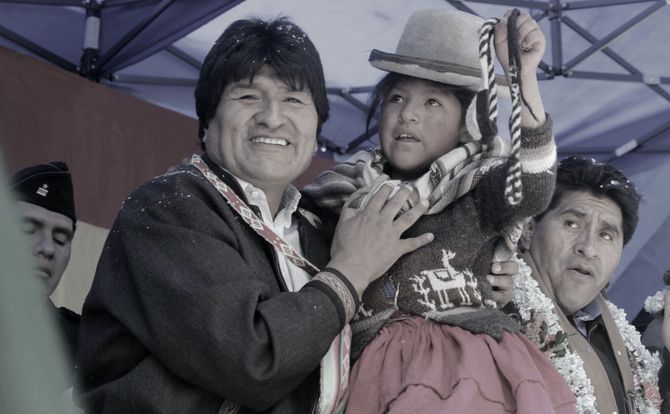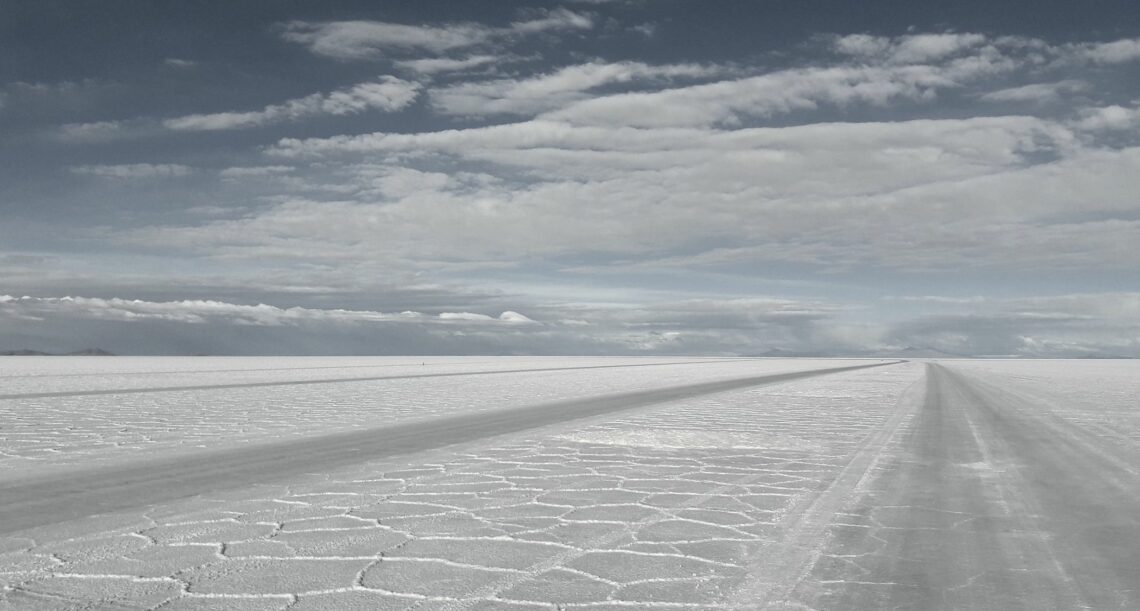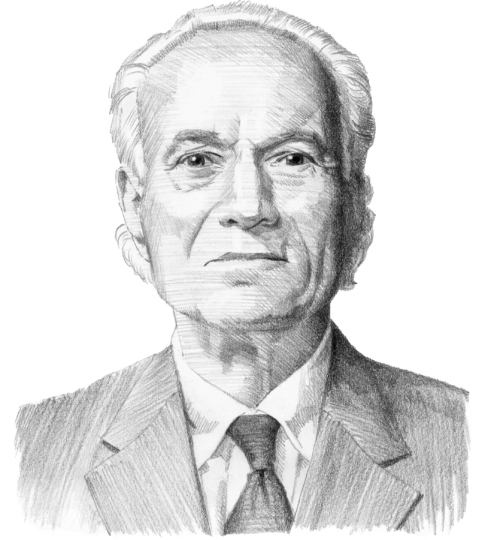Bolivia’s leftist president is feeling the heat
As President Morales gears up to run for an unconstitutional fourth term, Bolivian politics enter a pivotal year. The last member of Latin America’s “pink wave” of leftist governments that rose to power on the commodities boom of the early 2000s must now deal with slumping hydrocarbon revenues and disillusioned public.

In a nutshell
- Bolivia’s President Evo Morales is violating the constitution to seek a fourth term
- For the first time, public discontent and a faltering economy put his reelection in doubt
- The left-wing populist is so determined to stay in power he may ignore the election result
2019 is a pivotal year for Bolivia. In October, Evo Morales, the former leader of a coca grower’s union, will be running for a fourth term as president. Mr. Morales has been in office since 2006, overseeing 13 years of economic expansion that have handed him three elections by large margins. He is perhaps the last successful member of the “pink tide” of leftist governments that rose to power on a boom in export commodities across Latin America at the turn of the century.
Yet despite these successes, a strong sense of disillusionment is setting in among the Bolivian public, which increasingly sees the government as authoritarian, isolated, corrupt and incapable of sustaining growth. Although President Morales may win a fair election in October, the big question is whether he will seek to stay in office if he loses.
Perpetual president
In January, Bolivia held its first primaries to select presidential candidates for each party, a contest Mr. Morales won handily for his Movimiento al Socialismo (MAS) party. Yet the incumbent president’s candidacy, even in these primaries, is illegitimate.
Earlier rulings by Bolivia’s constitutional court and the Supreme Electoral Tribunal – packed with Morales loyalists – granted his petition to run for a fourth consecutive term and ruled that elected officials may run for unlimited reelection. These decisions blatantly violate the constitution that President Morales had shepherded through the approval process in 2009, establishing a limit of two consecutive presidential terms. Furthermore, the rulings also defy the results of a legally binding referendum that Mr. Morales held in 2016, in which a majority voted to block him from seeking reelection. This marked the first time he had suffered a major defeat at the polls.
Indigenous groups have grown wary of Mr. Morales’ authoritarianism.
A spate of corruption scandals, the country’s growing political isolation and slowing economic growth have turned many indigenous groups and social movements that once supported Mr. Morales into critics of the government. Although the Odebrecht scandal tearing through Latin America’s political class has not directly implicated Mr. Morales, reports of widespread graft and greater scrutiny of Chinese investments in the country have caused an uproar in Bolivia’s largest cities. Furthermore, as Bolivia’s first president of indigenous descent, Mr. Morales had vowed to champion indigenous rights, but numerous indigenous groups, particularly those from the tropical lowlands, have grown wary of his increasing authoritarianism. They also object strenuously to road and other infrastructure projects – funded by the Chinese – that would cross lands they consider protected.
Civil society organizations have been mobilizing national protests and are likely to throw their support behind opposition candidates, such as former President Carlos Mesa (2003-2005). Recent polls show Mr. Morales and Mr. Mesa each with about 30 percent support, trailed by other candidates in the single digits. Unlike in past elections, Mr. Morales finds himself in a much weaker position, because he cannot spend his way to win voters’ support.
Gas pressure
Perhaps the most significant constraint on President Morales is that his populist government can no longer rely on hydrocarbon revenues, which are declining. Contracts with Bolivia’s most important gas customers – Argentina and Brazil – are up for renewal just as both countries are boosting their own output and their new right-of-center leaders are distancing themselves from Mr. Morales. The effects on Bolivian gas sales have already made themselves felt, as economic growth slowed to just 3.3 percent in the third quarter of 2018, down from an average of 4.8 percent in 2004-2017, according to International Monetary Fund (IMF) figures.
Argentina is now reckoned to have the world’s second-largest shale gas reserves in the Vaca Muerta field, where daily output shot up an annual 169 percent in February, to 135 million cubic meters (mcm). As a result, Argentina negotiated in February to buy 10 percent less gas from Bolivia, continuing a decline which saw deliveries fall to 16.9 mcm a day in 2018 from 18.8 mcm in 2017. Brazil’s gas production has also increased, albeit more modestly. Average monthly output is up by 1.2 percent as national producer Petrobras starts bringing its new pre-salt fields on line. If these trends hold, the decline in Bolivian gas exports will probably continue and even accelerate over the next year or two.

Another reason for slowing hydrocarbon sales is Bolivia’s unreliability as a supplier. In 2017, Bolivia’s state-owned oil company YPFB was unable to deliver contracted volumes of gas to Argentina due to a series of production problems. Just two months ago, Brazil’s national oil company Petrobras fined YPFB for failing to deliver the required quantities of liquefied natural gas (LNG) via the Bolivia-Brazil pipeline in 2018. All this leaves Mr. Morales with a diminished budget to fund the populist policies that helped him win past elections.
Lithium lag
A wild card in this situation is what Bolivia chooses to do with the lithium-laden salt flats in its section of the “lithium triangle.” This region, shared among Bolivia, Chile and Argentina, is understood to hold more than half of the world’s lithium resources.
While Chile and Argentina, with funding from Chinese, Canadian and U.S. investors, are pushing ahead to exploit the deposits on their territory, President Morales has declared that “the lithium is ours” and has turned down most foreign investors seeking to develop the salt flats. Only in December 2018 did Bolivia agree to a partnership with Germany’s ACI Systems GmbH, a family-run clean tech and machinery supplier, to build a lithium hydroxide and a cathodes/battery plant.
With elections looming, the president was eager for a quick win on lithium.
ACI’s pledge to build the latter facility, to be sited on the Uyuni salt flats, may have clinched the deal, since it would for the first time allow Bolivia to refine raw ores into value-added oxides and products. Yet successfully producing lithium with a purity sufficient for cathode production will take several years, even from experienced companies, and may not materialize in Bolivia. As the current trade dispute between China and the United States has made clear, the refining of lithium and other rare earths is being treated by China as a geopolitical weapon.
In February 2019, Bolivia announced a preliminary $2.3 billion deal with China’s Xinjiang TBEA Group Co. Ltd. to produce lithium from the smaller Coipasa and Pastos Grandes salt flats. There are no estimates for how much lithium these salt flats hold, and the agreement makes no mention of producing lithium oxides or other higher-value lithium products previously demanded by Mr. Morales. This suggests that with presidential elections looming in a few months, Mr. Morales was eager to announce a quick win to begin exploiting Bolivia’s lithium reserves.
Even so, the country may have already fallen behind its neighbors on lithium output and will feel growing pressure to catch up.
Looking forward
President Morales has gradually undermined checks and balances in Bolivia’s democracy, strengthening the executive power and the influence of his MAS party. In 2013, he signed a decree that gave the government wide latitude to interfere with the operation of independent civil society groups and nongovernmental organizations. As his support became more equivocal after the failed 2016 referendum, the government pursued aggressive reform of the judiciary, giving more power to Mr. Morales’ political allies, undermining judicial independence, and enabling favorable rulings for his reelection effort.
Invoking human rights to support the reelection petition was a bizarre twist.
What gave the president’s strategy a bizarre twist was his invoking of human rights to support his petition for reelection. Relying on an obscure clause within the American Convention of Human Rights, Mr. Morales’ supporters argued that term limits discriminate against the president’s political rights as enshrined by the regional treaty. The clause in question, devised in 1969, was originally intended to prevent governments from arbitrarily barring opposition candidates, not to enable perpetual reelection.
Mr. Morales had often in the past referred to the Inter-American Commission on Human Rights as “an instrument of domination” and threatened to withdraw from the organization. His new reliance on its authority betrays just how desperately he wants to stay in power.
For just that reason, there is a serious possibility that if Mr. Morales loses the 2019 election, he may simply opt to reject the results. Such a move would risk intensifying political unrest in a country with a history of strong and powerful popular movements and relatively weak institutions. After all, it was Mr. Morales, as a union leader, who organized the nationwide protests in the early 2000s that led to the resignations of President Gonzalo Sanchez de Lozada (1993-1997, 2002-2003) and his successor, Carlos Mesa.








